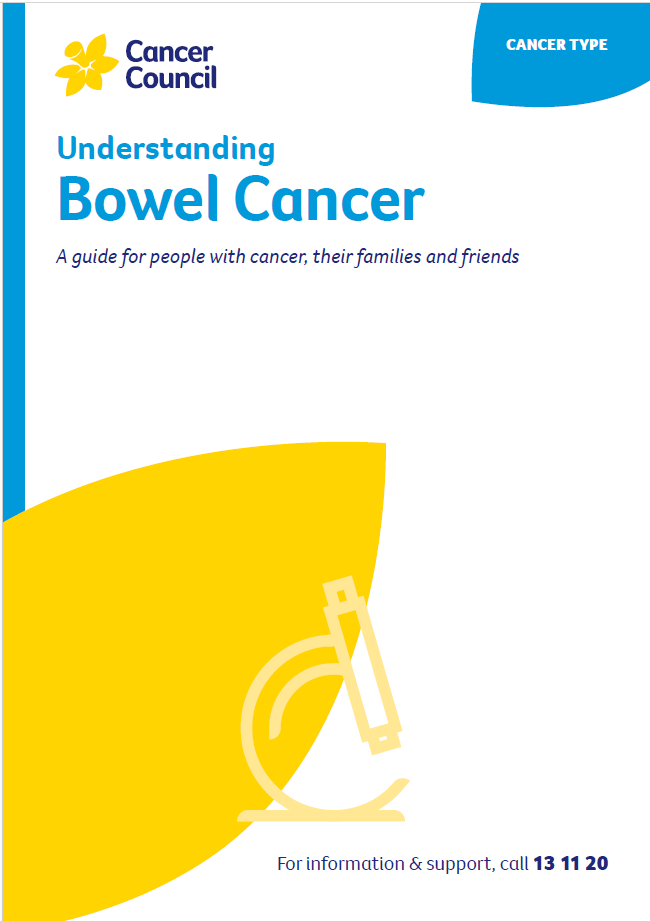Incontinence after bowel cancer treatment
Incontinence is when a person is not able to control their bowel or bladder. It may be caused by different treatments for bowel cancer.
Learn more about:
Faecal incontinence
After surgery or radiation therapy, the movement of waste through the large bowel can become faster. You may feel that you can’t wait when you need to go to the toilet (urgency), you need to go more often, or you have less control over bowel movements. Bowel surgery or radiation therapy may weaken the anus, making it difficult to hold on when you feel the need to empty your bowels, particularly if you have loose bowel movements (diarrhoea).
Urinary incontinence
This is when urine (wee or pee) leaks from your bladder without you being able to control it.
Bladder control may change after surgery or radiation therapy. For example, radiation therapy can irritate the lining of your bladder, because the bladder is located near the large bowel. Some people find they need to urinate more often, need to go in a hurry or don’t fully empty the bladder.
While you may feel embarrassed if you have bowel or bladder changes, there are ways to manage the symptoms. Incontinence usually improves in a few months, but sometimes take years. Talk to your treatment team about whether any bowel or bladder changes are likely to be permanent.
Ways to manage incontinence
- Talk to your surgeon or GP about available treatments. They may refer you to the hospital continence nurse or physiotherapist, who can suggest exercises to strengthen the pelvic floor muscles.
- Call the National Continence Helpline on 1800 33 00 66 to talk to a continence nurse about continence aids, if needed, or visit the Continence Foundation of Australia.
- Find out the location of toilets near where you are. Visit the National Public Toilet Map or download the National Public Toilet Map app from the App Store (Apple phones) or Google Play (Android phones).
- The Australian Government’s Improving Bowel Function After Bowel Surgery booklet provides helpful tips about managing bowel problems. To get a copy you can also call 1800 33 00 66.
→ READ MORE: Diarrhoea and wind
More resources
A/Prof David A Clark, Senior Colorectal Surgeon, Royal Brisbane and Women’s Hospital, QLD, The University of Queensland and The University of Sydney; Yvette Adams, Consumer; Dr Cameron Bell, Gastroenterologist, Royal North Shore Hospital, NSW; Katie Benton, Advanced Dietitian Cancer Care, Sunshine Coast University Hospital and Queensland Health, QLD; John Clements, Consumer; Dr Fiona Day, Medical Oncologist, Calvary Mater Newcastle, NSW; Alana Fitzgibbon, Clinical Nurse Consultant, GastroIntestinal Cancers, Cancer Services, Royal Hobart Hospital, TAS; Prof Alexander Heriot, Consultant Colorectal Surgeon, Director Cancer Surgery, Peter MacCallum Cancer Centre, and Director, Lower GI Tumour Stream, Victorian Comprehensive Cancer Centre, VIC; Caitriona Nienaber, 13 11 20 Consultant, Cancer Council WA; Dr Kirsten van Gysen, Radiation Oncologist, Nepean Cancer Care Centre, NSW.
View the Cancer Council NSW editorial policy.
View all publications or call 13 11 20 for free printed copies.

